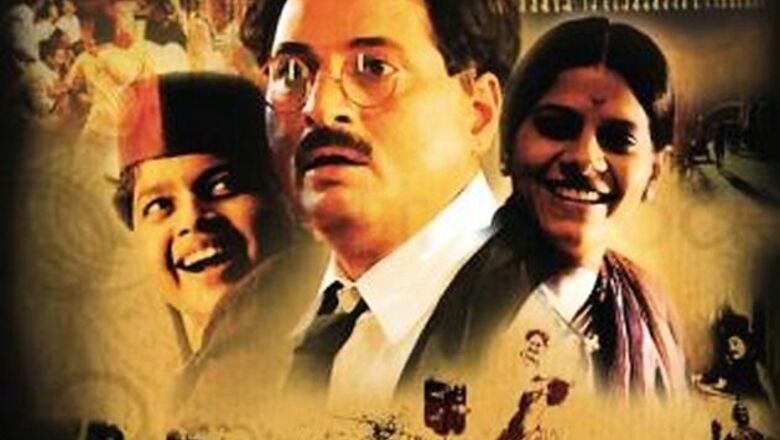
views
Writer, director and theatre personality Paresh Mokashi's Harishchandrachi Factory might be out of the Oscar race, but the film is an absolute delight to watch, all thanks to the storytelling technique used.
Mokashi could've easily succumbed to making a documentary style biopic based on Dadasaheb (Dhundiraj) Phalke's life, a man credited with being the father of Indian cinema. Instead, the director goes in for ample doses of subtle humour used at the right moments to make the film amusing for the audience – much in the same way a story is narrated to a wide-eyed child. And none of it is fiction, as all incidents have been taken from the stalwart's life.
Harishchandrachi Factory begins with showing the early life of Phalke (played by Nandu Madhav). He's shut down his printing press, and becomes a local magician to earn a living. It is after one such magic show in a chawl, when the soon-to-be filmmaker chances upon a film screening in town – a place mostly frequented by the white.
Phalke watches the proceedings inside in wonder with his young son – what he later addresses as "a play on screen" or "moving images". Having been an art and architecture student and run a photo studio once, (shut down due to some funny rumours) Phalke has a decent understanding of the art and craft of images.
Curious to learn the new "moving" form, he takes big risks, selling off his valuables to watch more movies and buy books on the subject. And soon, he takes the biggest risk and embarks on a journey to London, to meet up with filmmakers and learn the craft.
Once in London, Phalke endears all and lands a job assisting pioneering filmmaker Cecil Hepworth. The learning process of the budding Indian filmmaker is shown in a fast-forward way, making it interesting and funny rather than just boring documentation of events.
Phalke returns home with a Williamson camera and lots of ideas in his head. After his first experiment, he zeroes in on the story of Raja Harishchandra for his first commercial feature.
And so the search begins for the cast and crew. And then the training, shooting and the difficulties that come with it. This part takes up most of the second half of the film, and is again dealt with in a hilarious way, not letting the viewer feel the tension and anxiety Phalke must've lived with in that gestation period of his career.
What it does reflect is his optimism and ability to turn an adverse situation to his favour. And also his dedication – like when his son is seriously ill and Phalke still goes and shoots him on a funeral pyre. Imagine what must have gone through the man's mind! And finally,the film gets made.
Phalke is shown as a gentle husband and father, and as a filmmaker too, he is determined but not too aggressive. And yet, one could use some marketing and film promotion techniques applied by Phalke.
What is heartening is that in whatever he does, Phalke has the full support of his two kids and his wife (played by Vibhavari Deshpande). In fact, in all their experiments, she's the one helping him shoot and develop the prints. Mokashi shows her seriousness in one funny role-reversal scene where she's busy in the dark room and her husband Phalke cooks dinner! But yes, in all his endeavours, the two kids and the wife (and the newborn) live his dream. He, too, does not let them down, not forgetting to let his wife know that she's the inspiration behind all this.
Mokashi efficiently portrays Phalke's undying passion to make the first film in India – his focus, acumen, tenacity, perseverance and sense of humour in sadness. The effective acting and dialogues only add to it. Nitin Desai's sets take us back to the era (1911–14).
In the end, it is amazing to know that Phalke chose to make his films in India and for its people, rejecting a lucrative career option in the UK.
Verdict: The film has not been treated in the Cinema Paradiso way. There's no tragedy although there are sacrifices. Paresh Mokashi simply shows us the four-year journey of a filmmaker from making his first film to creating an industry, which he would eventually go on to lead. A must watch.
Rating: 4/5




















Comments
0 comment